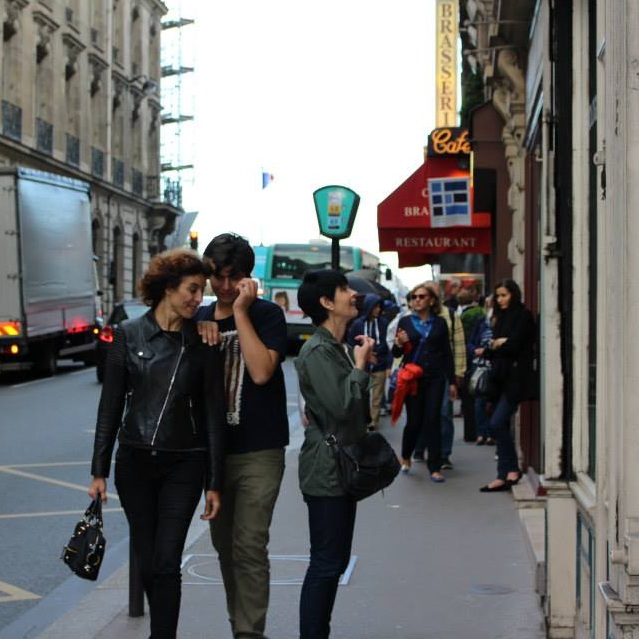
There are only so many times Emmet Ryan can use the term déjà vu in a tone that is both serious and dad jokey but looking at Paris as a potential Euroleague city certainly fits the bill. The French capital has a lot of promise and that, well, is the problem
After London dominated the conversation for years as the sounds good with a giant BUT city for Euroleague, Paris has slotted in nicely as the new ‘well maybe, if, etc’ via an interview by Euroleague chief executive Jordi Bertomeu earlier this month to RMC.
Let’s get to the good, then the bad, then realise this has a lot of the issues London did and the parts that look better are actually worse.
All those people
Depending on your definition, Paris has around 12.5 million people in its metropolitan area. That’s good enough for 4th in Europe and 33rd in the world. The three cities above them in Europe are Moscow, Istanbul, and London. The first two have a combined 5 teams in Euroleague and the other is London which we’ve talked about at length already.
A high population is always going to be appealing. It being in a city that is comparatively wealthy is a massive plus as well. The GDP per capita is a healthy €56,000 and it is the fifth largest urban economy in the world. If you are in a business that likes money, this is a place you would like to be.
Venue quality
There’s a broad spread here. Starting at the very top, the Accorhotels Arena in Bercy takes over 15,000 fans while Nanterre have used Halle George Carpentier (5,000), it’s also the home of Paris Basketball but more on that later, and Levallois played in Stade Pierre de Coubertin (4,000) and are currently in the Palais de Marcel-Cerdan (4,000). While the latter three are far more plausible in terms of housing Euroleague crwods in the city, they are so small as to be a problem in terms of viability for the league. Fortunately, they are unlikely to become problems as Arena II, a new arena with 7,000 or 7,500 capacity, is to due to be built in the north of the city by 2021 before any realistic entry of a Parisien side to Euroleague.
For our analysis series The Ballin After, post-game interviews, and more, subscribe to BallinEurope’s YouTube channel
Competition format
As we’re looking at some of the London issues as they affect Paris, it’s worth noting that the French league’s standard wouldn’t be a concern here. The LNB is solid and also has a fine TV deal so that on top of the situation so that’s a plus too. This wouldn’t be a worry.
There’s even history of projects working
This is the bit where we should note that Paris St Germain, one of the wealthiest clubs in football, still won’t turn 50 until next year. There has been football in Paris for a long time because it’s football but PSG brought regular top tier football to the city. This was not the norm and the current reign of PSG under Qatari ownership came after quite a run of mediocrity. This is a long way from the 10 games for 10 francs offer in 1976 for youth fans (around €10 at current prices) the club pushed to get bodies into Parc des Princes.
BallinEurope now has merch, like actual merch, t-shirts, phone covers, and even pillows. Check it all out on our RedBubble page.
Now we get to the bad bits
Competition for cash is insane
Paris, a city that is just plain enormous, has all of 1 football team in the top flight of its national league after a history of essentially none. That should set off some alarm bells. Paris has a lot of the allure of London and with it the competition for entertainment Euros. It has the arts, the theatre, the history, the food, and so much more. Basketball doesn’t just have to worry about other sports because even football has to fight to be anything like London in terms of drawing cash through turnstiles in Paris. That bar is high.
It’s really expensive
That high GDP per capita also comes with Paris clocking in right behind Singapore as far as cost of living goes. This is not a cheap place to live so just how much income is actually disposable there is very up for debate. Then there’s the tax situation in France. PSG’s very rich owners need to be because there are massive taxes to offset for high earners. While the 75 per cent rate for high earners is gone a few years, and wasn’t around all that long at all, France is still right up there in Europe with a top rate of 45 per cent. Combine that with cost of living vs a, say, Kaunas or Istanbul and what you are paying for top talent is come with a premium.
There’s also the massive marketing cost, like London, that competition for cash and work in building a new identity means a great deal will need to be invested in that regard, particularly in the early days, while still ensuring there’s enough to pay competitive salaries to challenge for the Euroleague playoffs from the off.
A mixed bag of other projects
PSG has backed a few ventures into other sports. The first, eh, was rugby league and it was a disaster. The team lasted all of two seasons, was a terrible draw for fans and generally just not well thought out. Under the new ownership, PSG has become an overnight power in handball. Again, for native anglophone readers (which is most of you) handball is big in continental Europe and France is a longtime power in the sport. It happens to play in the same place as Paris Basketball, we really will get to that but there’s a cultural elephant that needs to be addressed.
Sport is not central to identity
Parisians and Londoners have a cultural commonality in how they identify. Being a Parisian or a Londoner is just that by definition, everything else that comes with it varies by region because these cities have many communities within them both geographically and culturally that identify in their own way. They don’t look to the city as a whole as where they look for sporting solace, they expect it on a more granular level, more about their part of the city. In both cases, they don’t need an overarching city team for the most part because they are the home of their nation’s national sides in major sports for the most part.
About that division
It’s already reflected in basketball. Nanterre and Levallois are not clubs trying to be all of Paris. Nanterre is a western suburb, Levallois dropped Paris as a prefix in 2017 effectively accepting it is a side for its part of the city despite retaining the suffix Metropolitans. While that leaves large swathes of Paris for a potential Euroleague focused side to target, given as it stands Nanterre and Levallois won’t be looking at the budget to make such a push, it means big chunks of fans dedicated to the local product are off the market. Those with the buy-in to basketball at this level are the fans a Euroleague level basketball side would want from day one and that hardcore element is already splintered.
The attraction of Asvel for Euroleague is that it’s a long established and well-supported side with an owner who moves the needle nationally in the form of Tony Parker. It’s enough of a foothold in France for the league to not rush to Paris just because it doesn’t have a presence there.
The NBA is eyeing it up for a reason and it’s not Euroleague
The odd thing about Bercy, well the Accorhotels Arena, is that it’s almost certain to get a NBA regular season game despite being of comparative size to arenas in markets where top tier basketball has a strong foothold. The O2 in London, had both a larger (at least listed) capacity for basketball and a market that was NBA first. The association clearly thinks this is the case with Paris which is why it is not looking at Madrid (WiZink arena 15,500) or Berlin (14,500) as its second. It’s not for lack of NBA fans in those cities but Paris is both bigger in terms of population and less competitive with existing Euroleague or other teams.
Right, so, Paris Basketball
This is a side that’s looking at the good in these arguments certainly but it must be mindful of the challeneges. The club, led by former Minnesota Timberwolves president of basketball operations David Kahn, is in its first season under the current identity (formerly Paris Basket Avenir which itself was a merger of three clubs harking back to the history of PSG) and playing in Pro B.
It’s not attached to PSG which means it won’t have access to the type of quick cash that turned PSG’s handball club into a continental force but also means it will be free to grow its own identiy. Kahn has a rather ambitious goal of reaching Euroleague by 2022, which would roughly fall in line with this site’s guess work on any next phase of expansion by Euroleague to 20 teams. It sits however down in 11th spot of 18 teams in Pro B, all but guaranteeing it won’t be rocketing up to Pro A at the first attempt. That would make 2020/2021 the first plausible season for it to jostle with the best in France, giving it only a couple of seasons at most to prove itself in the eyes of Euroleague. On court performance may not be the most important factor for the brain trust in ELHQ in Barcelona but it’s likely to be an indicator of whether Kahn’s project can attract fans and draw investment.
It’s not so much that it couldn’t work, it’s not quite London, but there are enough of the larger London concerns to be seriously wary of whether a Paris project could work in the medium term. Like London, all that attracts Euroleague eyes to Paris comes with a warning as to why it hasn’t happened already. And, yes, for those of you who stayed this far the pic I used is from a work gig I went to in Paris a few years ago when I used the little break we had to talk snaps of randomers on the street.
Next up in this series that was never meant to be a series: A city with way more promise in the eyes of most outside observer, a history of hoops, but more questions than you might actually think.
To keep up to date with everything on BiE, like BallinEurope on Facebook




Leave a Reply